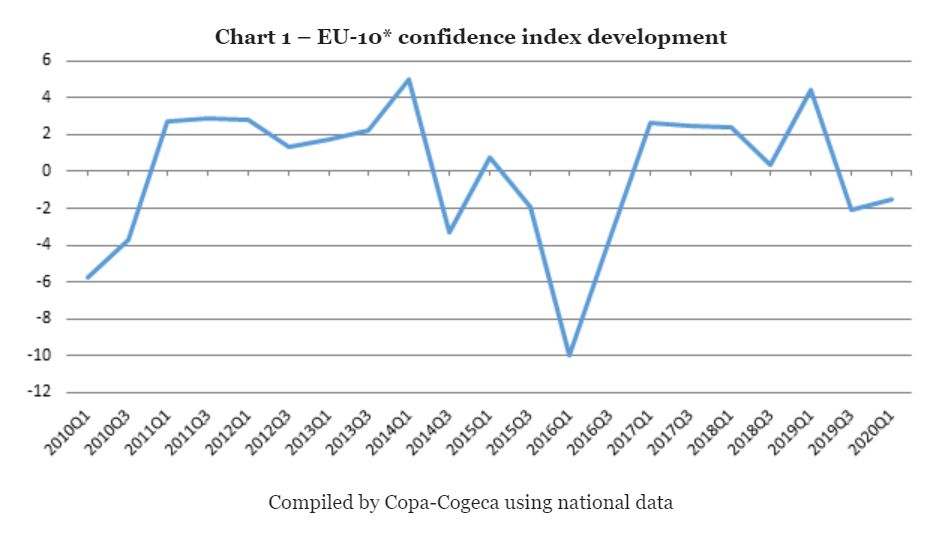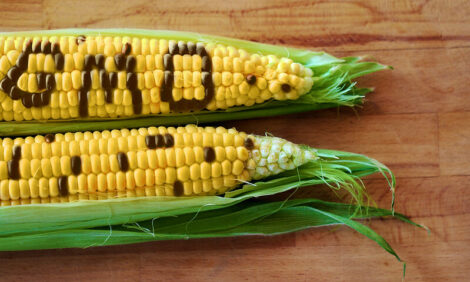



Researchers measure EU farmer confidence in the early stages of COVID-19
The EU Farmers Confidence Barometer survey was carried out over the first semester of 2020 across ten EU Member States and showed a slight lift in farmers’ moods compared to that of autumn 2019.However, this increase was not enough to make up for the negative sentiment still felt across all Member States. The survey was conducted during the early stages of the COVID-19 pandemic, meaning that it should be read carefully bearing in mind the context. The results vary and do not take into account the effects of the pandemic on production and the HoReCa channels.


The mood among farmers did not drastically change between this confidence index and the previous one. Although the overall impact of the pandemic was not entirely reflected in the survey, the pandemic did affect some countries, which is shown in Italy as their mood has darkened.
Italy was one of the first countries to be affected, showing a drastic reduction in confidence as the pandemic hit them the hardest early on. Understandably, Italy’s difficulties stemmed from struggling to find seasonal workers, the closure of the HoReCa channels and the major impact on wine demand from third countries, which is clearly mirrored in the results.
The Netherlands felt low in confidence as well, which could be explained mainly by the drop in demand in the horticulture and floriculture sectors, which would normally witness seasonal highs in the springtime. The pig and poultry sectors’ situation, however, remained virtually unchanged. The Netherlands’ confidence is projected to decrease further due to the inevitable collapse of some sectors and a decline in sales prices and production volumes.
When asked whether famers had faced any problems or difficulties whilst running their farms during the pandemic, Germany were the most positive with 62 percent of German farmers stating that they did not face any difficulties, followed by Italy (56 percent) and Hungary (46 percent). Belgium ranked top with 72 percent agreeing that they had come across minor difficulties. The problems most commonly encountered by farmers were weather conditions, input costs, a drop in agricultural prices, and environmental regulations.
The next edition of the barometer will highlight the agricultural sector’s struggles throughout the COVID-19 pandemic and might also prove itself as a yardstick to the European Commission to see whether the exceptional measures taken did indeed manage to alleviate the situation across Member States.










